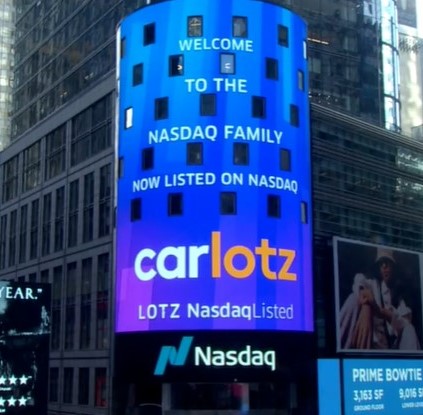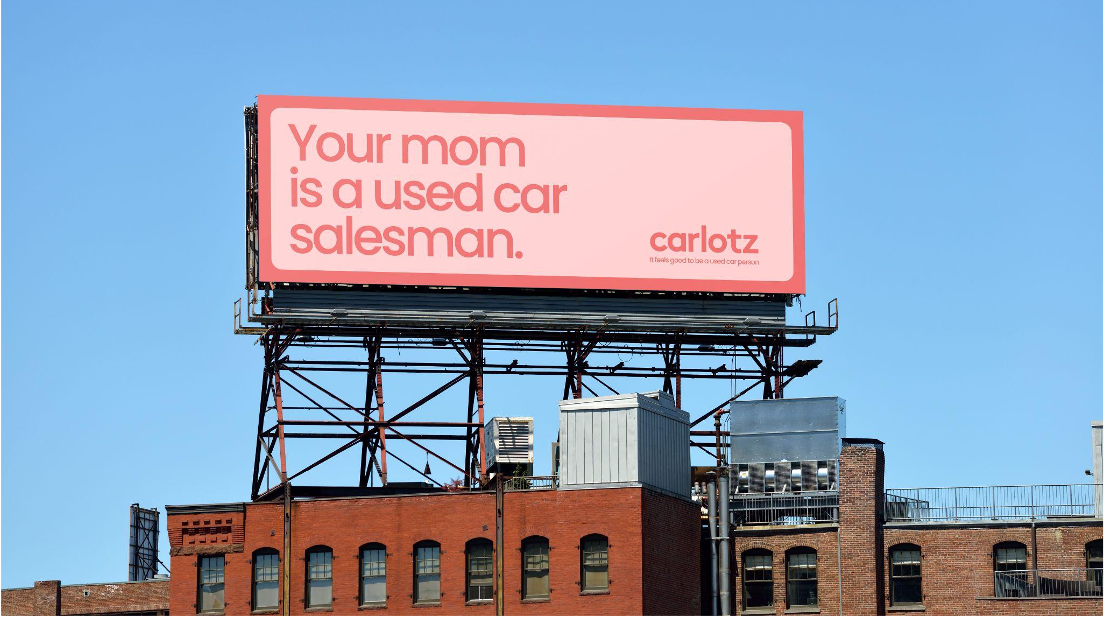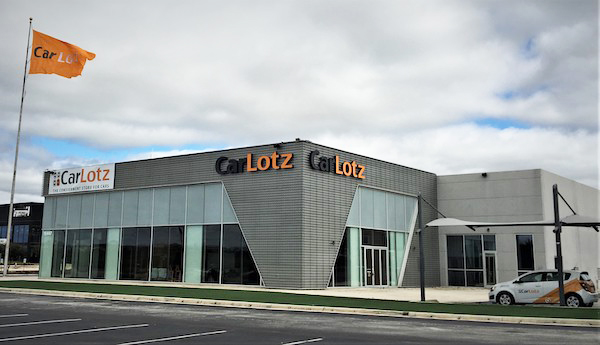There’s at least one CarLotz investor who isn’t looking forward to the company’s pending merger with a California peer.
The Scott’s Addition-based used car retailer was sued last week in federal court in Manhattan by a disgruntled shareholder, in a lawsuit that aims to prevent the consummation of the company’s previously announced marriage to Shift Technologies.
The plaintiff, Derek Dorrien, claims the deal is unfair to CarLotz shareholders for several reasons.
“Significantly, it appears as though the board has entered into the proposed transaction to procure for itself and senior management of the company significant and immediate benefits with no thought to plaintiff, as well as the company’s public stockholders,” the lawsuit alleges.
The 24-page complaint filed Nov. 4 claims documents issued as part of the CarLotz-Shift deal are materially deficient in an effort to convince shareholders to vote in favor of the transaction.
It claims the documents misrepresent important information related to the sale process, conflicts of interest for management, financial projections and financial valuation analyses.
In addition to the company, Dorrien also sued the members of the company’s board of directors: Linda Abraham, Steven Carrel, Nanxi Liu, David Mitchell, Kimberly Sheehy, James Skinner and Luis Solorzano.
The suit alleges two violations of the Securities Exchange Act of 1934 and demands a jury trial.
It doesn’t seek major damages but instead is attempting to block the transaction from closing, rescind the deal should it close before the case is resolved, and force the CarLotz board to issue more complete and accurate documents related to the deal.
Dorrien is represented by attorney Evan Smith of the Brodsky & Smith law firm in New York.
An email to CarLotz seeking comment was not returned Wednesday.
The Dorrien case is at least the eighth lawsuit CarLotz has faced since going public in January 2021 via a SPAC deal that’s since sent its stock price into penny-stock territory.
The other suits were likewise filed by shareholders unhappy with the company’s performance, but those all were filed prior to the announcement of the Shift transaction.
Most of the cases have been filed in the Southern District of New York in Manhattan due to CarLotz being traded on the Nasdaq Stock Exchange.
The bulk of those other cases were all structured as class action cases and make similar claims, alleging the company violated federal securities laws in the months leading up to and since its listing on Nasdaq. They were so similar in fact that most of them have been consolidated into one case which remains pending.
Such shareholder scrutiny isn’t uncommon for public companies and has become a cost of doing business thanks to what’s labeled by some executives as the white-collar equivalent of ambulance chasers.

The CarLotz stock, which trades as LOTZ on Nasdaq, has closed below $1 per share each business day since the spring.
Such suits are typically initiated by a small group of law firms from around the country that routinely put out “shareholder alerts” immediately after a big merger is announced involving a public company.
Indeed, Brodsky & Smith has been among the firms putting out word of its “investigation” of CarLotz in a search for plaintiffs.
The resulting lawsuits are often similarly worded and make similar claims. The cases often end with little consequence, either being dismissed or tossed after the parties agree to tweak certain disclosures in SEC filings.
CarLotz’s financial performance hasn’t helped deter such cases.
After going public at around $12 per share and a market cap of $1.9 billion, the stock has nosedived steadily since and closed Wednesday at $0.20. That amounts to a market cap of $23 million. It hasn’t traded above $1 per share since the spring and the company has been hit with a delisting warning from Nasdaq.
The Shift deal could make the stock price problem go away, but Shift is facing similar issues. The San Francisco-based company was also hit with a delisting warning last month. It said at the time its goal is to close the deal with CarLotz and complete a stock split that would raise its stock price to get it back into compliance.
Meanwhile, CarLotz posted its third quarter financials this week, reporting a loss of $24 million. To date in 2022 it has lost $84 million.
Shift also posted its third quarter results, with a loss for the three months of $75 million.
There’s at least one CarLotz investor who isn’t looking forward to the company’s pending merger with a California peer.
The Scott’s Addition-based used car retailer was sued last week in federal court in Manhattan by a disgruntled shareholder, in a lawsuit that aims to prevent the consummation of the company’s previously announced marriage to Shift Technologies.
The plaintiff, Derek Dorrien, claims the deal is unfair to CarLotz shareholders for several reasons.
“Significantly, it appears as though the board has entered into the proposed transaction to procure for itself and senior management of the company significant and immediate benefits with no thought to plaintiff, as well as the company’s public stockholders,” the lawsuit alleges.
The 24-page complaint filed Nov. 4 claims documents issued as part of the CarLotz-Shift deal are materially deficient in an effort to convince shareholders to vote in favor of the transaction.
It claims the documents misrepresent important information related to the sale process, conflicts of interest for management, financial projections and financial valuation analyses.
In addition to the company, Dorrien also sued the members of the company’s board of directors: Linda Abraham, Steven Carrel, Nanxi Liu, David Mitchell, Kimberly Sheehy, James Skinner and Luis Solorzano.
The suit alleges two violations of the Securities Exchange Act of 1934 and demands a jury trial.
It doesn’t seek major damages but instead is attempting to block the transaction from closing, rescind the deal should it close before the case is resolved, and force the CarLotz board to issue more complete and accurate documents related to the deal.
Dorrien is represented by attorney Evan Smith of the Brodsky & Smith law firm in New York.
An email to CarLotz seeking comment was not returned Wednesday.
The Dorrien case is at least the eighth lawsuit CarLotz has faced since going public in January 2021 via a SPAC deal that’s since sent its stock price into penny-stock territory.
The other suits were likewise filed by shareholders unhappy with the company’s performance, but those all were filed prior to the announcement of the Shift transaction.
Most of the cases have been filed in the Southern District of New York in Manhattan due to CarLotz being traded on the Nasdaq Stock Exchange.
The bulk of those other cases were all structured as class action cases and make similar claims, alleging the company violated federal securities laws in the months leading up to and since its listing on Nasdaq. They were so similar in fact that most of them have been consolidated into one case which remains pending.
Such shareholder scrutiny isn’t uncommon for public companies and has become a cost of doing business thanks to what’s labeled by some executives as the white-collar equivalent of ambulance chasers.

The CarLotz stock, which trades as LOTZ on Nasdaq, has closed below $1 per share each business day since the spring.
Such suits are typically initiated by a small group of law firms from around the country that routinely put out “shareholder alerts” immediately after a big merger is announced involving a public company.
Indeed, Brodsky & Smith has been among the firms putting out word of its “investigation” of CarLotz in a search for plaintiffs.
The resulting lawsuits are often similarly worded and make similar claims. The cases often end with little consequence, either being dismissed or tossed after the parties agree to tweak certain disclosures in SEC filings.
CarLotz’s financial performance hasn’t helped deter such cases.
After going public at around $12 per share and a market cap of $1.9 billion, the stock has nosedived steadily since and closed Wednesday at $0.20. That amounts to a market cap of $23 million. It hasn’t traded above $1 per share since the spring and the company has been hit with a delisting warning from Nasdaq.
The Shift deal could make the stock price problem go away, but Shift is facing similar issues. The San Francisco-based company was also hit with a delisting warning last month. It said at the time its goal is to close the deal with CarLotz and complete a stock split that would raise its stock price to get it back into compliance.
Meanwhile, CarLotz posted its third quarter financials this week, reporting a loss of $24 million. To date in 2022 it has lost $84 million.
Shift also posted its third quarter results, with a loss for the three months of $75 million.


Bohr is a total crook. Got paid and fled (got fired). They’re a poorly run used car lot that loses money on every single unit sold. Flawed model with no upside except for management to fleece shareholders, nothing more.
“William Wallace” better be posting that from behind a private VPN, those NDAs can bite.